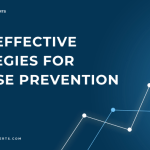Introduction
Addiction recovery is a multifaceted journey that requires a blend of strategies to achieve lasting success. One powerful tool that has gained traction in recent years is mindfulness. By cultivating a state of awareness and presence, mindfulness can significantly bolster recovery efforts. In this article, we’ll explore seven compelling ways that mindfulness can enhance the journey to sobriety.
Understanding Mindfulness
Mindfulness is the practice of paying attention to the present moment without judgment. It involves observing thoughts and feelings as they arise, fostering an awareness that can lead to greater insight into oneself. According to a study published in the journal Substance Abuse, mindfulness practices can significantly reduce relapse rates in individuals recovering from addiction. But how exactly does it contribute to recovery? Let’s find out.
1. Enhances Self-Awareness
Mindfulness encourages individuals to develop a deeper understanding of their thoughts and behaviors. This self-awareness is crucial in addiction recovery, as it allows individuals to identify triggers and cravings before they escalate.
By recognizing patterns in behavior and thought, recovering individuals can take proactive steps to avoid potential pitfalls.
How It Works:
- Mindfulness Meditation: Practicing meditation helps you observe your thoughts without judgment.
- Journaling: Writing down feelings can enhance self-reflection.
For more on enhancing self-awareness, check out 10 Powerful Techniques to Cultivate Positive Mindset.
2. Reduces Stress and Anxiety
Stress and anxiety are common triggers for relapse. Mindfulness practices, such as deep breathing and focusing on the present moment, can significantly reduce these feelings.
Research from the American Psychological Association shows that mindfulness reduces the physiological responses to stress, making it easier to cope with challenges without resorting to substances.
Techniques to Try:
- Deep Breathing: Inhale deeply for four counts, hold for four, and exhale for four.
- Body Scan: Focus on each part of your body, noticing sensations and releasing tension.
For further techniques on managing stress, explore 10 Proven Stress Management Techniques for Daily Relief.
3. Improves Emotional Regulation
Addiction often stems from an inability to cope with negative emotions. Mindfulness can help recoverees develop better emotional regulation skills.
Benefits of Emotional Regulation:
- Decreased Mood Swings: Mindfulness helps to stabilize emotions.
- Improved Decision Making: By managing emotions, individuals can make more rational choices.
Practicing mindfulness allows individuals to acknowledge their emotions without immediate reaction, fostering a more balanced emotional landscape.
To learn more about emotional regulation, visit 10 Effective Emotional Regulation Techniques for Daily Life.
4. Strengthens Coping Mechanisms
When faced with cravings or stressful situations, having effective coping strategies is vital for recovery. Mindfulness teaches individuals to respond to challenges with resilience.
Effective Coping Strategies:
- Mindful Walking: Engage in walking meditation to clear your mind and refocus.
- Visualization: Imagine a peaceful place to reduce anxiety in stressful situations.
By developing these skills, individuals can replace unhealthy coping mechanisms with healthy ones, reducing the likelihood of relapse.
For additional coping strategies, check out 10 Proven Stress Management Strategies for Workplace.
5. Encourages Healthy Relationships
Mindfulness can improve interpersonal relationships by fostering empathy and understanding. For those in recovery, building a supportive network is essential.
Relationship Benefits:
- Enhanced Communication: Mindfulness allows for better listening and understanding.
- Reduced Conflict: By managing reactions, individuals can navigate disagreements more effectively.
Studies indicate that mindfulness practices can lead to more fulfilling relationships, which are critical for sustained recovery.
For insights on strengthening relationships, see 10 Key Habits for Building Healthy Relationships.
6. Increases Focus and Concentration
Mindfulness training can enhance cognitive functions such as focus and attention. This can be particularly beneficial in recovery, where distractions can lead to relapse.
Techniques to Boost Focus:
- Mindful Eating: Focus on the taste and texture of food to train your mind to stay present.
- Single-Tasking: Concentrate on one task at a time rather than multitasking.
By honing these skills, individuals can stay committed to their recovery plans and personal goals.
For techniques to enhance focus, refer to 10 Mindfulness Techniques to Improve Your Sleep Quality.
7. Fosters a Positive Outlook
A positive mindset can be a game-changer in addiction recovery. Mindfulness encourages gratitude and appreciation for life’s moments, which can shift perspectives.
Ways to Cultivate Positivity:
- Gratitude Journaling: Write down three things you’re grateful for each day.
- Positive Affirmations: Speak kindly to yourself to reinforce a positive self-image.
Research from the Greater Good Science Center suggests that mindfulness practices can enhance overall well-being and life satisfaction.
For more on boosting positivity, check out 10 Powerful Affirmations to Boost Mental Health Today.
Conclusion
Incorporating mindfulness into addiction recovery can lead to transformative changes in one’s journey. From enhancing self-awareness to fostering positive relationships, the benefits are profound and far-reaching. Individuals can cultivate resilience, manage stress, and foster a healthier outlook on life by embracing mindfulness practices.
FAQs
Q: Can mindfulness really prevent relapse?
A: While it’s not a guaranteed solution, mindfulness can significantly reduce stress and improve emotional regulation, which are critical factors in preventing relapse.
Q: How often should I practice mindfulness?
A: Daily practice is ideal, even if it’s just for a few minutes. Consistency can lead to more profound benefits.
Q: Are there apps available to help with mindfulness?
A: Yes! Apps like Headspace and Calm offer guided meditations and mindfulness exercises.
For more information on mindfulness and its benefits, visit Mindful.org or the National Institute on Drug Abuse.
By implementing these mindfulness strategies into your recovery journey, you’ll not only enhance your chances of long-term sobriety but also foster a more fulfilling life overall. Remember, recovery is a journey, and every small step counts!





